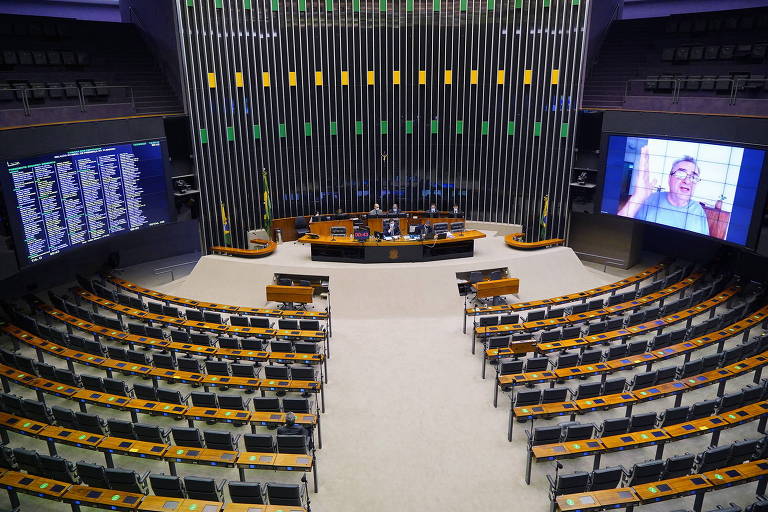Brazil's congressional remote voting system, introduced in March 2020 as a result of the Covid pandemic, can be defrauded, a possibility recognized by the House itself. The House says it is studying ways to eliminate the gap.
In recent weeks, Folha has interviewed congress members who, in a reserved manner, claim that the quorums obtained in the virtual sessions have occurred without effective participation, with most voters spending all their time with the audio and video of their cell phones and computers turned off.
In addition, some suspected that assistants have been voting in place of representatives, which is prohibited and constitutes a breach of parliamentary decorum, liable to removal from office.
Before the pandemic, votes in the House's plenary took place exclusively in person, with biometric registration of both attendance and vote.
In a statement, the House noted that the technical area "is analyzing the adoption of facial biometrics in the remote voting process" and that the project is still in its initial phase. "This is an investment in security provided for in the application's evolution schedule."
Translated by Kiratiana Freelon
